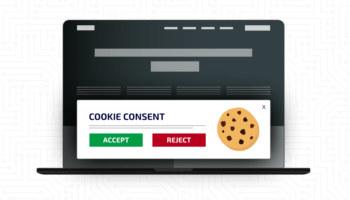Chances are, even if you’re not a regular blogosphere reader you heard about the recent scathing privacy review given to Google in a report issued by Privacy International. The report evaluated 24 of the most popular web companies — from Amazon and Apple to Skype, LinkedIn and Google — and gave Google alone the crushing rating of “Comprehensive consumer surveillance & entrenched hostility to privacy.” Summarizing the several indictments against Google (including a vague privacy policy and foggy fate of collected data) is the bold statement of Google’s “track history of ignoring privacy concerns. Every corporate announcement involves some new practice involving surveillance.”
Though this study states it was conducted over a six-month period, we can only infer that the latter statement is inspired by the recent launch of Google Street View, a new service offering street-level views of San Francisco, New York, Denver, Las Vegas and Miami, which has lead to a vocal outcry from the blogosphere and more than a smattering of sites dedicated to finding compromising photos on the service. Even otherwise internetphiles find the service kind of scary.
Google, of course, was prompt to retort the condemning report, with Matt Cutts citing how Google held information from the US DOJ and will anonymize search logs after 18-24 months (and shortly afterwards, reduced that period to just 18 months). He also critiques the wanton selling of browsing history by ISPs to third parties, an equally unsettling issue handled completely outside the report.
While I certainly agree that Google received a possibly unearned damnation, the reality is that while their privacy record may not be that bad, it’s not that good either. Even if you’re motto is “Don’t be evil,” you can do a whole lot without intending it, and tracking the search results of millions upon millions of searches, scanning emails for relevant content to advertise, and aggregating in-depth information of physical geography and making it available to the world does open up a whole lot of potentialities that need to be considered very carefully.
Rather than pinning all the blame on Google, I think what this report points to is the need to have a national dialogue about these issues and reach an understanding, be it legal or cultural, about what expectations there are of both producers/users in the Web 2.0 world and the companies that make this world happen. We are living in an increasingly transparent planet, interconnected and quantifiable from your Blackberry to your credit card, and Google is not alone in its share of blame for the iffy privacy situation resulting from all of it. What we need, more than deflecting blame, is a comprehensive movement to confront the idea of privacy in the 21st century.





